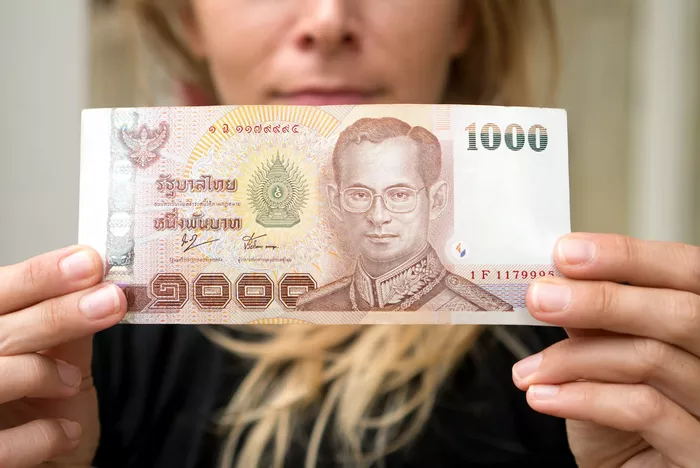The strength of the U.S. dollar in Thailand is a topic that draws interest from tourists, investors, and businesses alike. To determine whether the dollar is strong in Thailand, it is important to consider several factors, including exchange rates, economic conditions, and market dynamics. The U.S. dollar’s purchasing power compared to the Thai baht affects everything from travel costs to investment returns and import-export balances.
Currency strength is typically measured by how much one currency can buy relative to another. In Thailand, the U.S. dollar often holds significant influence due to its status as a global reserve currency. However, the dollar’s value against the Thai baht fluctuates based on economic policies, geopolitical events, and market demand. These fluctuations impact the cost of goods and services for foreigners and locals.
Exchange Rate Trends Between USD and THB
The exchange rate between the U.S. dollar (USD) and the Thai baht (THB) serves as the primary indicator of the dollar’s strength in Thailand. Over recent years, the USD/THB exchange rate has experienced notable changes due to global economic factors and Thailand’s own economic performance. When the USD is strong against the baht, it means one dollar can buy more baht, which benefits Americans traveling or doing business in Thailand.
Key factors that influence the exchange rate include:
- Interest rate differences: Higher interest rates in the U.S. attract investment, boosting the dollar.
- Trade balances: Thailand’s export and import levels affect demand for the baht.
- Political stability: Political events in Thailand or the U.S. can influence investor confidence.
- Global economic conditions: Events such as pandemics or financial crises cause volatility.
Understanding these trends helps businesses and travelers plan accordingly, whether converting currency or negotiating contracts.
Impact of a Strong Dollar on Thai Economy
When the dollar strengthens against the Thai baht, it can have mixed effects on Thailand’s economy. On the positive side, a strong dollar makes Thai exports cheaper and more competitive in global markets. Exporters benefit from increased demand, which can boost production and create jobs.
Conversely, a strong dollar can make imports more expensive for Thai consumers and businesses. This price increase may lead to inflationary pressures and reduce purchasing power domestically. For foreign investors, currency fluctuations may also impact returns on investments in Thai assets, creating an environment of uncertainty.
How Tourists Experience the Dollar’s Strength in Thailand
Tourists visiting Thailand from the United States or other dollar-based economies often feel the effects of the dollar’s strength directly. A strong dollar means that American tourists get more baht for every dollar exchanged, making accommodation, food, shopping, and entertainment more affordable.
For example, when the USD is strong, a hotel stay that previously cost 2,000 baht might only require fewer dollars to pay, effectively lowering travel costs. This advantage can increase tourism inflows and support local businesses that rely heavily on foreign visitors.
Businesses and Investors: Navigating Currency Risks
For businesses operating in Thailand or investing in Thai markets, the strength of the dollar presents both opportunities and challenges. Companies that import raw materials or products priced in U.S. dollars may face higher costs when the dollar strengthens. Conversely, exporters who sell to dollar-based markets can benefit from increased profit margins.
Investors must also manage currency risk carefully. Changes in the USD/THB exchange rate can significantly affect the value of investments denominated in baht when converted back to dollars. Hedging strategies and currency diversification are common tools to mitigate this risk.
Government Policies Influencing Currency Strength
Thailand’s government and central bank actively monitor and manage currency fluctuations to ensure economic stability. Through monetary policies such as interest rate adjustments and foreign exchange interventions, authorities aim to prevent excessive volatility in the USD/THB exchange rate.
Thailand’s approach includes:
- Maintaining foreign exchange reserves: To stabilize the baht when necessary.
- Managing inflation: Keeping inflation within target ranges to preserve currency value.
- Promoting economic growth: Encouraging exports and investment to support currency demand.
These measures contribute to a more balanced relationship between the dollar and baht, affecting overall economic health.
Long-Term Outlook for the Dollar in Thailand
Predicting the long-term strength of the dollar in Thailand involves assessing global economic trends, U.S. fiscal policies, and Thailand’s economic development. Factors such as U.S. monetary tightening or easing, trade agreements, and regional geopolitical stability will influence future exchange rates.
Experts generally expect the dollar to remain a dominant global currency, but fluctuations in its strength against the baht will persist. Thailand’s continuing economic growth, infrastructure investments, and tourism industry expansion may support the baht’s stability, even amid a strong dollar environment.
Practical Tips for Travelers and Businesses
For those planning to visit or do business in Thailand, understanding the dollar’s strength can lead to better financial decisions. Here are some practical tips:
- Monitor exchange rates: Use currency tracking tools to exchange money when rates are favorable.
- Plan expenses: Budget according to current exchange rates to avoid surprises.
- Consider local payment options: Sometimes paying in baht directly can avoid additional currency conversion fees.
- Hedge currency risks: Businesses should explore hedging options to protect against currency volatility.
- Stay informed: Follow economic news to anticipate market changes affecting currency strength.
Conclusion
In summary, the U.S. dollar often holds considerable strength in Thailand, influenced by economic policies, market dynamics, and global factors. While the dollar can be strong relative to the Thai baht, this strength fluctuates over time. The dollar’s strength affects tourists, businesses, and the Thai economy in both positive and negative ways.
Travelers benefit from a strong dollar through increased purchasing power, while exporters and investors face mixed impacts. Government interventions help stabilize the currency environment, but market conditions will continue to drive changes. Ultimately, understanding these dynamics is essential for anyone engaging with Thailand’s economy or planning a visit to this vibrant country.
Related Topics:
- Who Is on the 20 Thai Baht?
- Which Thai Baht Notes Are Still Valid: A Full Guide
- Can You Fold Thai Baht?



